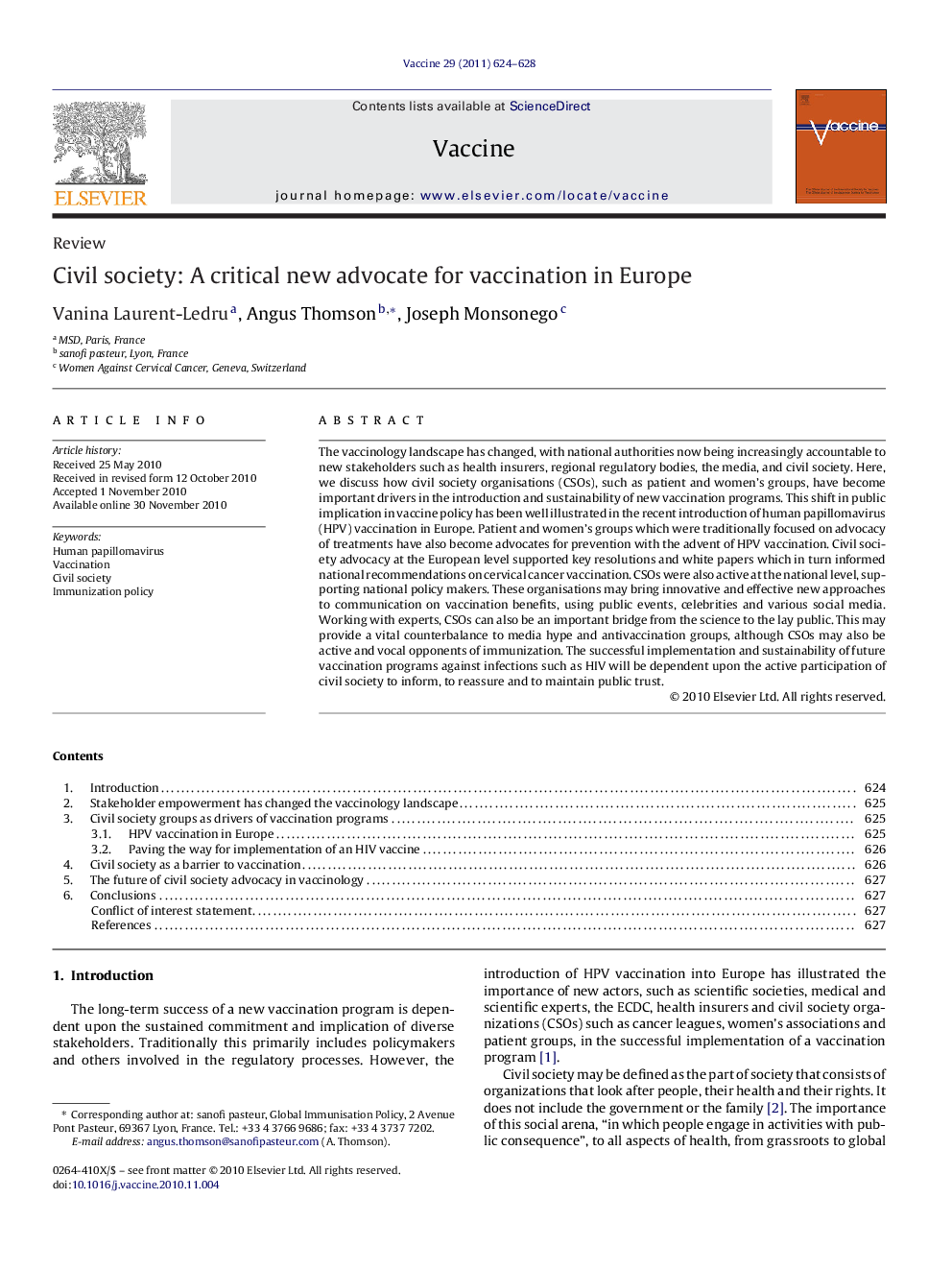| Article ID | Journal | Published Year | Pages | File Type |
|---|---|---|---|---|
| 10969168 | Vaccine | 2011 | 5 Pages |
Abstract
The vaccinology landscape has changed, with national authorities now being increasingly accountable to new stakeholders such as health insurers, regional regulatory bodies, the media, and civil society. Here, we discuss how civil society organisations (CSOs), such as patient and women's groups, have become important drivers in the introduction and sustainability of new vaccination programs. This shift in public implication in vaccine policy has been well illustrated in the recent introduction of human papillomavirus (HPV) vaccination in Europe. Patient and women's groups which were traditionally focused on advocacy of treatments have also become advocates for prevention with the advent of HPV vaccination. Civil society advocacy at the European level supported key resolutions and white papers which in turn informed national recommendations on cervical cancer vaccination. CSOs were also active at the national level, supporting national policy makers. These organisations may bring innovative and effective new approaches to communication on vaccination benefits, using public events, celebrities and various social media. Working with experts, CSOs can also be an important bridge from the science to the lay public. This may provide a vital counterbalance to media hype and antivaccination groups, although CSOs may also be active and vocal opponents of immunization. The successful implementation and sustainability of future vaccination programs against infections such as HIV will be dependent upon the active participation of civil society to inform, to reassure and to maintain public trust.
Related Topics
Life Sciences
Immunology and Microbiology
Immunology
Authors
Vanina Laurent-Ledru, Angus Thomson, Joseph Monsonego,
